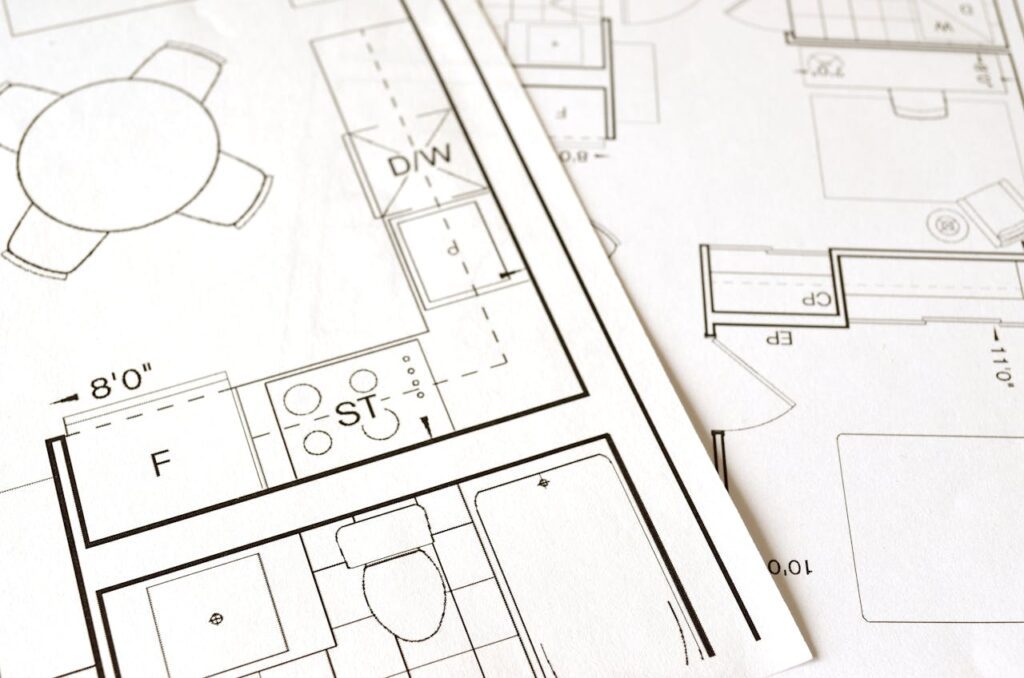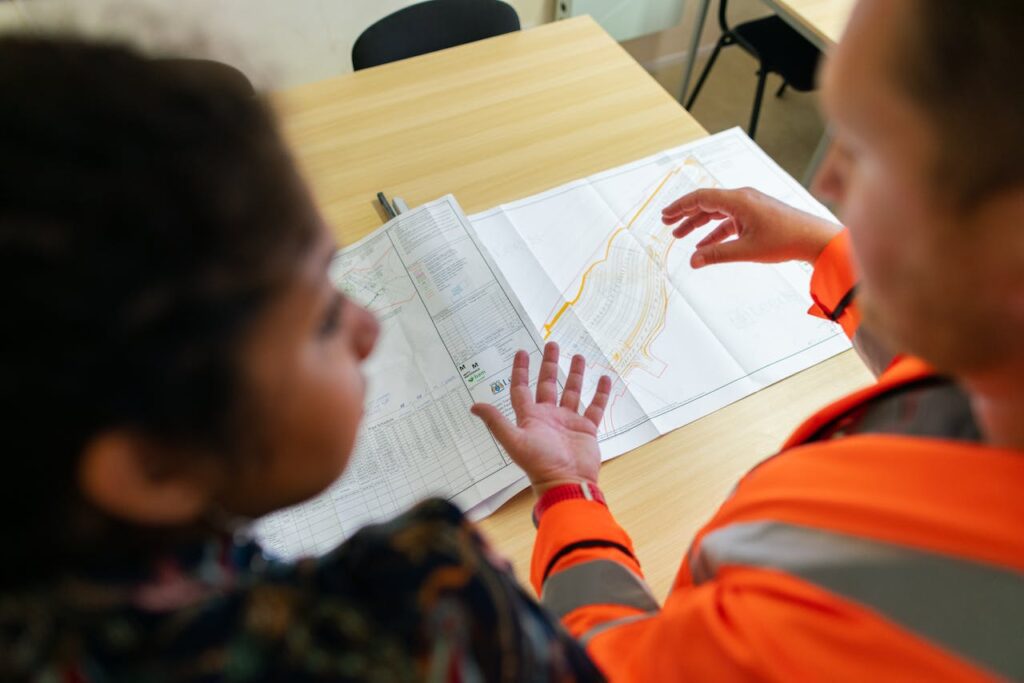Are you tired of the endless search for the perfect pre-construction planning services? In this step-by-step guide, we will unveil the secrets to choosing the right services that align perfectly with your needs. From understanding your project requirements to evaluating service providers and negotiating contracts, we’ve got you covered.
Get ready to navigate through the maze of options and make an informed decision that sets you up for success. Say goodbye to confusion and hello to clarity as we walk you through each crucial step in selecting pre-construction planning services tailored just for you.
Understanding Pre-Construction Services
Importance Of Pre-Construction Services
Pre-construction services are essential as they lay the groundwork for a successful construction project. These services encompass initial planning and coordination before actual construction commences. They play a pivotal role in identifying potential issues, estimating costs accurately, and establishing realistic project timelines.
Pre-construction services act as the foundation upon which a construction project is built. By engaging in these services, stakeholders can mitigate risks, ensure efficient resource allocation, and enhance overall project efficiency. For instance, through comprehensive pre-construction planning, potential design flaws or logistical challenges can be identified early on to prevent costly delays during the construction phase.
Key Elements Of Pre-Construction Services
- Identification of Potential Issues: Pre-construction services involve thorough site evaluations to identify any existing challenges or limitations that may impact the construction process.
- Cost Estimation: Accurate cost estimation is crucial for budgeting purposes and ensuring that financial resources are allocated appropriately throughout the project.
- Establishing Project Timelines: Defining clear project timelines helps all parties involved understand key milestones and deadlines, facilitating effective project management.
Factors To Consider When Selecting Pre-Construction Planning Services
- Expertise and Experience: Look for service providers with a proven track record in delivering successful pre-construction solutions.
- Communication Skills: Effective communication between all stakeholders is vital for seamless coordination throughout the pre-construction phase.
- Technology Integration: Opt for service providers who leverage advanced technologies such as Building Information Modeling (BIM) to enhance planning accuracy.
Importance Of Effective Pre-Construction Planning
Budget And Time Management
Effective pre-construction planning is crucial for keeping projects on track financially and temporally. It ensures that the budget is adhered to and deadlines are met, preventing costly delays. Without proper planning, a project might run into unexpected expenses or miss completion dates.
Proper planning allows for accurate resource allocation, ensuring that materials, labor, and equipment are available when needed. This minimizes downtime during construction, optimizing efficiency. For example, if a project requires specific materials that have long lead times for delivery, early identification through pre-construction planning can prevent delays.
Risk Mitigation
Pre-construction planning plays a vital role in identifying potential risks before they impact the project. By conducting thorough assessments during this phase, issues such as site conditions or regulatory requirements can be addressed proactively. This proactive approach helps in minimizing unexpected challenges during the construction process.
By anticipating risks beforehand through effective pre-construction planning, mitigation strategies can be developed to address these issues promptly without causing disruptions later on. For instance, if an environmental assessment reveals soil contamination at the construction site during the pre-planning stage, necessary remediation steps can be included in the plan to avoid costly delays down the line.
Pros:
- Ensures projects stay within budget.
- Helps in meeting project timelines.
- Allows for efficient resource allocation.
Cons:
- Inadequate planning may lead to cost overruns.
- Projects could face delays without proper pre-construction preparation.
Key Elements Of The Pre-Construction Phase
Activities In Pre-Construction
The pre-construction phase involves crucial activities like site evaluation, feasibility studies, and design development. These steps are essential to ensure that the construction project is well-planned.
During this phase, professionals assess the site’s conditions, determine if the project is feasible, and start developing detailed designs for construction. For example, a team might conduct soil tests to understand ground stability or create initial sketches based on client requirements.
In addition to these tasks, obtaining necessary permits is also vital before starting any construction work. This ensures that all legal requirements are met before breaking ground on a new project.
Planning And Communication
Another critical aspect of pre-construction planning services is creating detailed project schedules. These timelines outline when specific tasks will be completed during the construction process.
Establishing effective communication channels among all stakeholders involved in the project is key to its success. This includes regular updates on progress, addressing any issues promptly, and ensuring everyone stays informed throughout each stage of development.
Moreover, setting up clear lines of communication helps prevent misunderstandings and delays during construction by keeping everyone aligned with project goals.
Steps In Choosing The Right Pre-Construction Planning Services
Identify Requirements And Goals
Before selecting pre-construction planning services, determine your project’s needs and objectives. Consider aspects like budget, timeline, and specific requirements such as sustainable construction or specialized designs. Understanding these elements will help you pinpoint the exact services required for your project. For instance, if you aim for an eco-friendly building, look for companies with expertise in green construction practices.
It is crucial to align your goals with the capabilities of potential service providers. By clearly defining what you expect from the pre-construction phase, you can effectively communicate with companies during the selection process. This clarity ensures that both parties are on the same page regarding project expectations and deliverables.
Research Service Providers
Research various pre-construction planning firms to understand their experience levels and areas of expertise thoroughly. Look into their portfolios to assess past projects similar to yours; this will give insight into their capabilities and quality of work. Check for reviews or testimonials from previous clients to gauge customer satisfaction levels.
After shortlisting a few companies based on research findings, delve deeper into each one’s background by examining their qualifications and certifications related to pre-construction planning services. A company that has successfully completed projects akin to yours may be better equipped to handle your specific needs effectively.
Request Proposals And Compare Offerings
Once you have narrowed down your options, request detailed proposals from each shortlisted company outlining their approach towards pre-construction planning for your project specifically. Compare these proposals carefully – analyze factors such as timelines provided, cost estimates offered, methodologies proposed, technologies utilized (e.g., Building Information Modeling), and any value-added services included.
Create a comparison matrix highlighting key aspects of each proposal against your project requirements; this will aid in making an informed decision based on objective data rather than subjective opinions alone.
Building Information Modeling (BIM) In Pre-Construction
Understanding BIM
Building Information Modeling (BIM) is a digital tool that represents both the physical and functional aspects of a building. It goes beyond just 3D modeling, providing stakeholders with a comprehensive view of the project. BIM enables architects, engineers, and construction teams to collaborate effectively by sharing crucial information in real-time.
BIM allows for the visualization of designs before actual construction begins. This visualization helps identify potential clashes or issues early on in the process. By simulating various scenarios using BIM, professionals can optimize construction sequences and detect any possible conflicts between different building systems. For instance, if plumbing interferes with electrical wiring within the design phase, adjustments can be made promptly to prevent costly rework during construction.
Benefits Of Integrating BIM
One significant advantage of integrating BIM into pre-construction planning is enhanced collaboration among project stakeholders. With all parties working off the same model, communication becomes clearer and more efficient throughout the entire project lifecycle. This collaborative approach minimizes errors and misunderstandings that often arise when using traditional 2D drawings.
Another key benefit is improved overall project efficiency. By utilizing BIM, pre-construction planning services can streamline processes such as scheduling, cost estimation, and material procurement. The ability to visualize every aspect of a building project beforehand reduces uncertainties during actual construction activities.
Value Engineering For Cost Management
Understanding Value Engineering
Value engineering is crucial in pre-construction planning as it focuses on maximizing value while minimizing costs. This process ensures that quality and functionality are not compromised, even as expenses are reduced. By analyzing various design alternatives, materials, and construction methods, cost savings can be achieved without sacrificing the project’s integrity.
Value engineering is akin to finding a balance between quality and cost efficiency. For instance, when constructing a building using steel beams may be more expensive than wood initially; however, steel might offer longevity benefits that outweigh the higher upfront costs. This method involves critical thinking to identify where costs can be saved without undermining the overall project objectives.
Benefits Of Implementing Value Engineering
- Cost Reduction: One of the primary advantages of incorporating value engineering during pre-construction is significant cost reductions.
- Enhanced Quality: By carefully evaluating different aspects like materials and design options, projects can achieve improved quality standards.
- Innovation: Value engineering encourages innovative solutions by challenging conventional practices to find better ways to achieve desired outcomes.
Implementing value engineering early in the pre-construction phase allows for thorough examination of all elements involved in a project. It enables stakeholders to make informed decisions based on detailed analysis rather than rushing through choices that could impact both budget and final results negatively.
Risk Analysis And Safety Planning Strategies
Identifying Potential Hazards
Risk analysis is crucial in choosing the right pre-construction planning services. By conducting a thorough risk analysis, potential hazards can be identified early on. For example, analyzing the soil quality of a construction site can reveal risks related to stability during building.
A comprehensive risk assessment helps project managers understand possible dangers like environmental factors or structural weaknesses. This information guides the development of effective mitigation strategies to address these risks before they escalate.
Implementing Safety Measures
Safety planning is an essential aspect of pre-construction preparation that prioritizes worker well-being and project success. It involves implementing safety measures to protect workers, bystanders, and the construction itself from harm.
For instance, safety protocols such as providing personal protective equipment (PPE) for all workers on-site are part of safety planning strategies. These measures ensure that everyone involved in the project operates in a secure environment.
Ensuring A Safe Working Environment
Prioritizing risk analysis and safety planning guarantees a safe working environment throughout the construction process. By focusing on these aspects early on, potential accidents can be minimized significantly.
Creating detailed emergency response plans based on risk assessments enhances overall project safety by preparing for unforeseen events effectively. This proactive approach not only safeguards individuals but also prevents costly delays due to accidents or emergencies.
Comprehensive Preconstruction Checklist
Importance Of A Checklist
A step-by-step guide in choosing the right pre-construction planning services is crucial for any successful construction project. A comprehensive preconstruction checklist covers essential tasks like site surveys, obtaining permits, setting budgets, and creating schedules. This checklist acts as a roadmap that ensures all necessary steps are completed before actual construction commences. By following this detailed plan, the chances of oversights or delays are significantly reduced.
When embarking on a construction project, having a structured pre-construction checklist can make a substantial difference in the overall success of the endeavor. Tasks such as conducting thorough site surveys help identify potential challenges early on, allowing for proactive solutions to be implemented. Obtaining permits beforehand ensures legal compliance and prevents costly setbacks during construction due to regulatory issues.
Benefits Of Following The Checklist
One key advantage of utilizing a comprehensive preconstruction checklist is its ability to streamline processes and enhance efficiency throughout the project lifecycle. Budgeting accurately from the start helps prevent financial surprises later on and enables better resource allocation. Scheduling tasks systematically ensures that each phase flows seamlessly into the next without unnecessary delays or disruptions.
Approaching The Preconstruction Phase Strategically
Aligning Project Goals With Resources
In choosing the right pre-construction planning services, it’s crucial to align project goals with available resources. This step ensures that your vision for the construction project is feasible within the constraints of budget, time, and manpower. By setting realistic goals and understanding resource limitations upfront, you can avoid delays and cost overruns down the line. For example, if your goal is to build a LEED-certified building but your budget is limited, you may need to prioritize certain sustainability features over others.
Strategic preconstruction planning involves evaluating what resources are needed at each stage of the project. By assessing these requirements early on, you can make informed decisions about where to allocate resources most effectively. This approach helps in optimizing resource utilization throughout the construction process and minimizes wastage or shortages. Effective communication among team members during this phase ensures that everyone is aware of resource needs and constraints.
Communication Among Stakeholders
Effective communication, collaboration, and coordination among stakeholders are essential components of strategic preconstruction planning services selection. When choosing a service provider for pre-construction planning, consider their track record in fostering clear communication channels between all parties involved in the project. Transparent communication helps in avoiding misunderstandings or conflicts that could derail progress later on.
Closing Thoughts
Congratulations! You’ve now unlocked the secrets to choosing the perfect pre-construction planning services. By understanding the importance of each step, from BIM integration to risk analysis, you’re equipped to make informed decisions that can shape the success of your construction project. Remember, the devil is in the details, so ensure every aspect of your pre-construction phase is meticulously planned and executed.
Now it’s time to put your newfound knowledge into action. Dive into the pre-construction phase with confidence, armed with a comprehensive checklist and a strategic mindset. Your project’s success hinges on these early stages, so don’t rush through them. Take your time, apply what you’ve learned, and watch as your construction dreams turn into reality.
Frequently Asked Questions
1. How Important Is Effective Pre-Construction Planning?
Effective pre-construction planning is crucial as it sets the foundation for a successful construction project. It helps identify potential risks, streamline processes, and optimize resources for cost-efficiency.
2. What Are The Key Elements Of The Pre-Construction Phase?
The key elements include site evaluation, budget estimation, timeline development, risk assessment, and resource allocation. These components ensure that all aspects of the project are thoroughly planned before moving into the construction phase.
3. Why Is Building Information Modeling (BIM) Essential In Pre-Construction?
BIM allows for detailed 3D visualization and collaboration among stakeholders during the planning stage. It enhances communication, identifies clashes early on, improves decision-making, and increases overall efficiency in project coordination.
4. How Does Value Engineering Help With Cost Management In Pre-Construction?
Value engineering focuses on maximizing value by optimizing resources without compromising quality. By analyzing different options and alternatives to reduce costs while maintaining functionality and quality standards ensures efficient cost management during pre-construction.
5. What Safety Planning Strategies Are Involved In Preconstruction?
Risk analysis plays a vital role in safety planning during preconstruction. Strategies such as hazard identification, emergency response plans, regular safety inspections, training programs for workers contribute to creating a safe working environment from the initial stages of a project.
Optimize Your Project’s Success With Pre-Construction Planning By Red White & Blue Construction!
Embarking on a construction project in Lafayette, CA? Look no further than Red White & Blue Construction for expert pre-construction planning services! Specializing in laying the groundwork for successful construction projects, we tailor our pre-construction strategies to meet your specific project goals. Renowned for our expertise in pre-construction planning, we are committed to ensuring your project’s vision is meticulously planned and prepared for, whether it’s a residential, commercial, or community initiative. Our reputation across the Bay Area speaks to our dedication to precision, quality, and the exceptional standards we uphold in every phase of planning.
At Red White & Blue Construction, we do more than just prepare; we set the foundation for your project’s success. With our comprehensive planning, transparent pricing, and exceptional client service, you’re not just planning a construction project; you’re setting the stage for a seamless, efficient build. Choose Red White & Blue Construction for your pre-construction planning needs. Begin your project with confidence and contact us today!
Disclaimer
The materials available on this website are for informational and entertainment purposes only and not to provide advice. You should obtain advice concerning any particular issue or problem from a professional. You should not act or refrain from acting based on any content included in this site without seeking legal or other professional advice. The information presented on this website may not reflect the most current building developments. No action should be taken in reliance on the information on this website. We disclaim all liability concerning actions taken or not taken based on any or all of the contents of this site to the fullest extent permitted by law.





